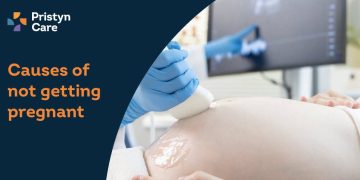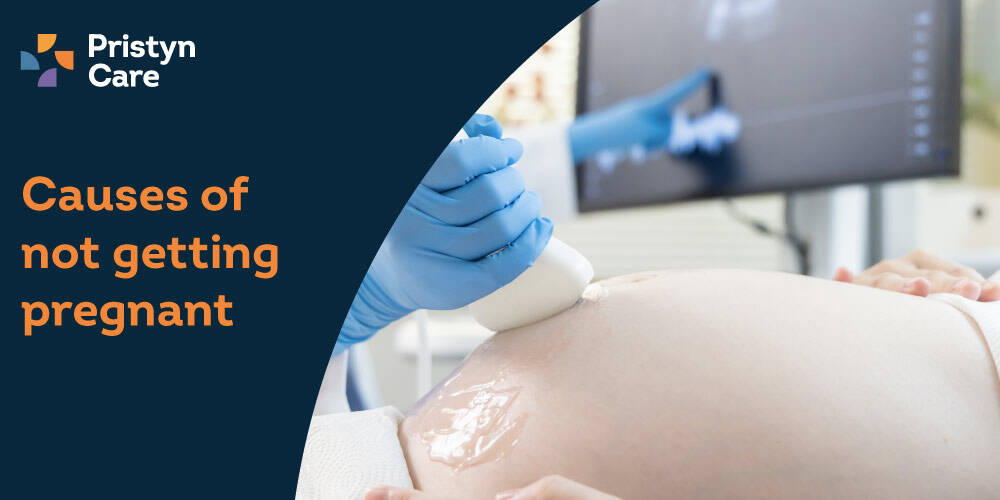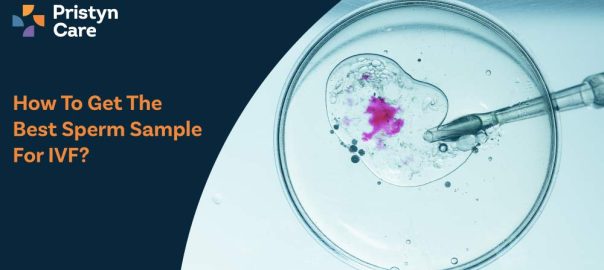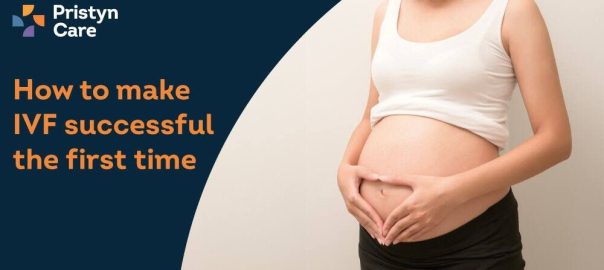![]() Views: 70
Views: 70
Causes of Not Getting Pregnant
Understanding these complexities is crucial for healthcare professionals and couples alike, enabling more effective treatments and informed decision-making.
Dedicated Support at Every Step!
Our Doctors are available 24 hours a day, 7 days a week to help you!
Call Us0806-541-7961Table of Contents
Understanding Infertility
Infertility impacts both genders, with 20-30% of cases attributed to male factors and 20-35% to female factors. Many cases arise from a combination of factors, leaving 10-20% unexplained. Fertility in women relies on ovulation and egg quality, while in men, it depends on sperm production and quality. Key metrics like the Total Fertility Rate (TFR) and Crude Birth Rate (CBR) help gauge population health. Assisted reproductive technologies (ART) can enhance conception chances and are often included in treatment plans.
Understanding these intricacies is essential for medical professionals to devise precise interventions and for individuals to make informed decisions about treatment options.
No Cost EMI, Hassle-free Insurance Approval
Potential Causes of Female Infertility
When it comes to concerns of "I need to get pregnant this month", understanding the potential causes of infertility is critical. Following are the numerous factors and female infertility causes that influence a woman's ability to conceive.
- Age: Fertility declines after age 35 due to decreased egg quality.
- Ovulation Disorders: Conditions like PCOS disrupt normal ovulation.
- Tubal Blockage: Blocked fallopian tubes prevent egg and sperm from meeting.
- Endometriosis: This painful condition occurs when tissue grows outside the uterus, affecting fertility.
- Uterine Abnormalities: Structural issues such as fibroids can interfere with implantation.
- Hormonal Imbalances: Disorders like thyroid dysfunction disrupt cycles.
- Lifestyle Factors: Obesity, smoking, excessive alcohol consumption, and high stress negatively impact fertility.
Polycystic Ovary Syndrome (PCOS) and Infertility
PCOS is a common hormonal disorder that significantly impacts female fertility. Women with PCOS often experience irregular periods or anovulation (lack of ovulation), making it difficult to conceive. The condition is characterised by elevated levels of androgens (male hormones), which can lead to symptoms like weight gain, acne and excessive hair growth. Additionally, multiple cysts on the ovaries can disrupt normal ovarian function. PCOS is associated with insulin resistance, further complicating fertility by affecting hormone levels. Early diagnosis and management through lifestyle changes or medication can improve ovulatory function and enhance the chances of conception.
Potential Causes of Male Infertility
Male Infertility contributes to a significant portion of infertility cases, with a variety of factors leading to reduced fertility:
- Low Sperm Count (Oligospermia): Hinders fertilisation chances.
- Azoospermia: Complete absence of sperm in the ejaculate.
- Varicocele: Enlarged veins raise testicular temperature, affecting sperm.
- Ejaculation Issues: Conditions like retrograde ejaculation prevent sperm delivery.
- Infections: STIs or reproductive organ infections can damage sperm.
- Hormonal Imbalances: Affect sperm production.
- Genetic Factors: Abnormalities like Klinefelter syndrome impact fertility.
Lifestyle Factors Affecting Male Fertility
Lifestyle choices significantly influence male fertility. Key factors include:
- Smoking: Tobacco use has been linked to reduced sperm quality and motility.
- Alcohol Consumption: Excessive drinking can lead to hormonal imbalances that impair sperm production.
- Stress: High stress levels may affect hormones and sexual performance, impacting fertility.
- Obesity: Being overweight is associated with lower testosterone levels and reduced sperm quality.
- Heat Exposure: Frequent exposure to high temperatures (e.g., from hot baths or tight clothing) can adversely affect sperm production.
Infertility Treatments and Their Importance
Struggling with Infertility can be an emotionally challenging journey, but fortunately, various medical treatments are available to help couples experience the joy of parenthood.
In women, one of the primary causes of infertility can be irregular ovulation. In such a case, doctors may suggest ovulation induction, which involves using medications to stimulate the production of eggs in the ovaries. If the issue is related to sperm not reaching the egg, intrauterine insemination (IUI), a process where sperm is directly placed into the uterus during ovulation, could be the recommended treatment.
There are also instances where both these treatments might not prove effective. In such scenarios, in vitro fertilisation (IVF) comes into play. IVF is a process where eggs are fertilised by sperm in a lab and then implanted into the uterus. Some women may need surgical intervention to address structural issues like blocked fallopian tubes or endometriosis.
For men struggling with Infertility, treatments often focus on improving sperm quality or addressing underlying health conditions. Doctors can prescribe medications to enhance hormone levels, and if required, surgery can be performed to rectify anatomical issues like varicocele. Assisted reproductive technologies like IUI and IVF can also be used.
Regardless of the gender, early diagnosis is crucial for successful treatment outcomes. Identifying the causes of infertility at an early stage can lead to more effective interventions, increasing the chances of conception. If you're unable to get pregnant despite trying for over a year, or even earlier if age or known fertility issues are involved, we urge you to consult your doctor at the earliest. A proactive approach significantly enhances reproductive success rates and brings you one step closer to fulfilling your dream of building a family.
The Evolving Landscape of Infertility Treatment Options
With continuous advancements in medical treatments, there is a beacon of hope for those grappling with Infertility. Today's innovative assisted reproductive technologies and personalised treatment plans offer a multitude of options to help you achieve your dream of starting a family. The field of fertility treatment is progressing at a rapid pace, providing renewed optimism and possibilities. If you're struggling to conceive or have signs that you can't get pregnant, it's essential to seek help early. The medical fraternity is here to support and guide you through this complex journey.
Conclusion: The Importance of Awareness and Timely Medical Consultation
In conclusion, understanding the causes of infertility is crucial for all individuals and couples who are finding it challenging to conceive. This knowledge can guide you towards seeking timely medical consultation and necessary intervention, significantly enhancing your chances of successful conception. Remember, early recognition and proactive measures can be a game-changer in your journey towards parenthood.
When it comes to pregnancy and fertility issues, each individual's journey is unique. Keep positive and consult your doctor regularly for guidance and support.
FAQs
- How can I increase my chances of getting pregnant?
To increase your chances of pregnancy, you should understand your monthly cycle and the timing of ovulation. Having regular intercourse, especially around the time of ovulation, is a key factor. Lifestyle changes like maintaining a healthy weight, consuming a balanced diet, quitting smoking, reducing alcohol intake and managing stress can also boost fertility. It's advisable to consult your family doctor for a pre-conception check-up. - What is the age limit for getting pregnant?
There isn't a universal "age limit" for getting pregnant, as women's fertility varies. However, fertility typically declines with age, especially after the mid-30s. While it is possible to get pregnant naturally in your 40s or even early 50s, complications and risks such as miscarriage and chromosomal abnormalities increase. - Is there any hard and fast rule for getting pregnant?
The process of conceiving varies from couple to couple; there isn't a one-size-fits-all method. Understanding your menstrual cycle and ovulation pattern can be beneficial. However, if you're finding it challenging to conceive despite trying for over a year (or six months if you're over 35), consult a doctor for an infertility evaluation. - Is 40 too late to have a baby?
No, it's not too late to have a baby at 40. However, pregnancy after 40 may involve higher risks and complications like gestational diabetes or high blood pressure. It might also be harder to conceive naturally due to declining fertility. - How do I know if my body is ready for pregnancy?
Signs that your body may be ready for pregnancy include regular menstrual cycles, positive ovulation test results, and absence of pain during sex. A female fertility test can provide more information about your reproductive health. - What age is considered high risk for pregnancy?
Pregnancy is generally considered high risk if the woman is over 35 years of age. The risks increase with age, and therefore, constant monitoring and special care are required. - What is the oldest woman who can get pregnant naturally?
While there's no set age limit for natural conception, most women find it increasingly difficult to get pregnant after the age of 45 due to changes in the quality and quantity of eggs. - Why am I not getting pregnant?
There could be many causes of Infertility, including hormonal imbalances, structural issues, male Infertility, or lifestyle factors. If you're having trouble conceiving, it's best to consult your doctor, who may suggest an infertility treatment. - What are the signs of ovulation?
Common signs of ovulation include a change in cervical mucus, an increase in basal body temperature, mild pelvic pain on one side, spotting, increased libido, tender breasts and heightened senses. - What are the signs of an unhealthy pregnancy?
Unusual signs during pregnancy could include severe abdominal pain, persistent headaches, rapid weight gain or loss, frequent dizziness or fainting spells, spotting or bleeding, swelling in hands or face and decreased baby movement. If you experience any of these symptoms, it's important to seek immediate medical attention.
References:
- https://www.ncbi.nlm.nih.gov/pmc/articles/PMC4233315/
- https://academic.oup.com/humrep/article/39/5/1155/7635395
- https://my.clevelandclinic.org/health/diseases/16083-infertility
- https://www.ncbi.nlm.nih.gov/books/NBK556033/
- https://www.medicalnewstoday.com/articles/165748
- https://www.plannedparenthood.org/learn/pregnancy/infertility
- https://www.who.int/news-room/fact-sheets/detail/infertility











